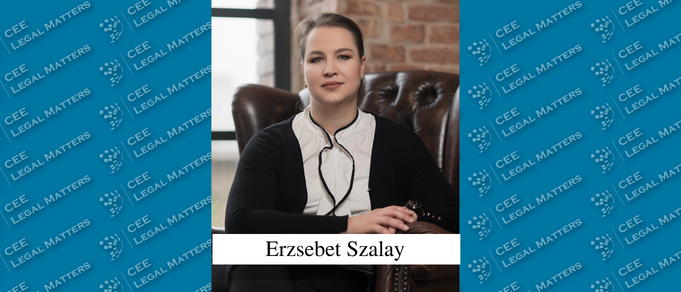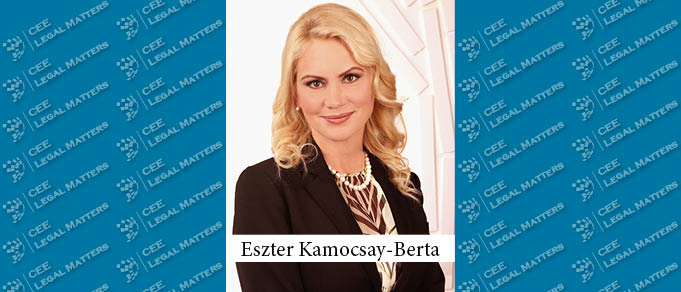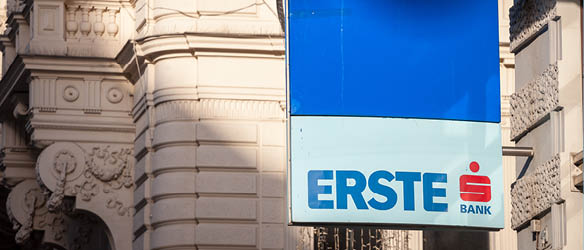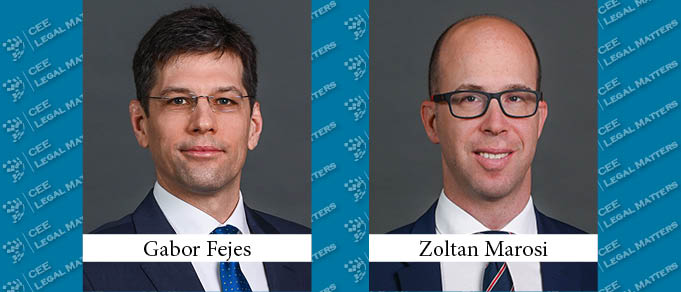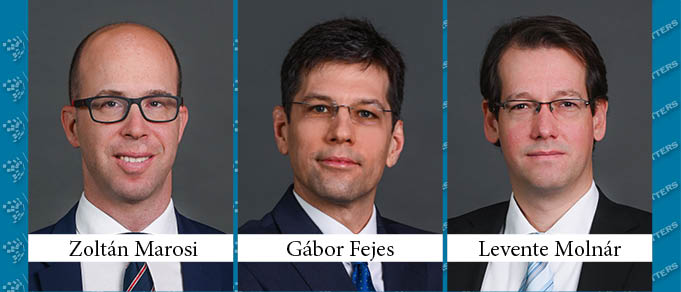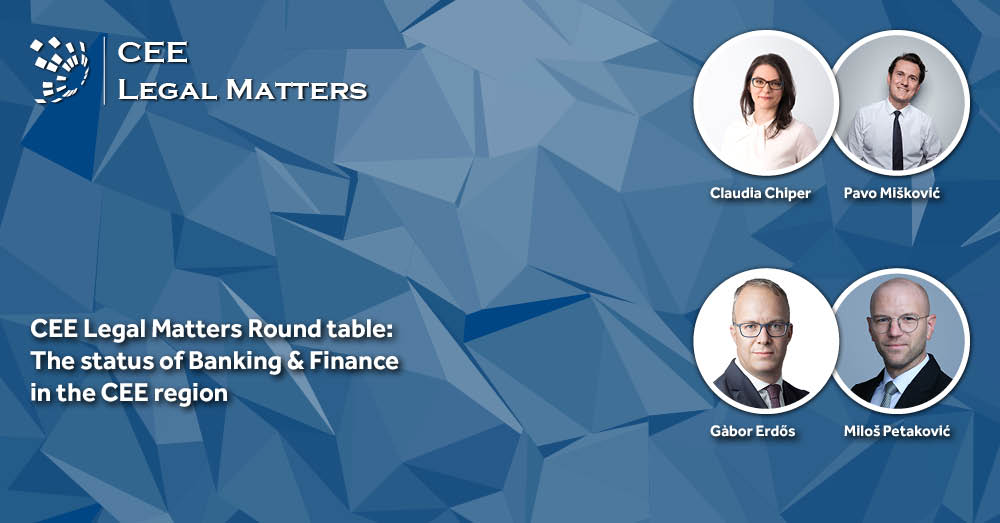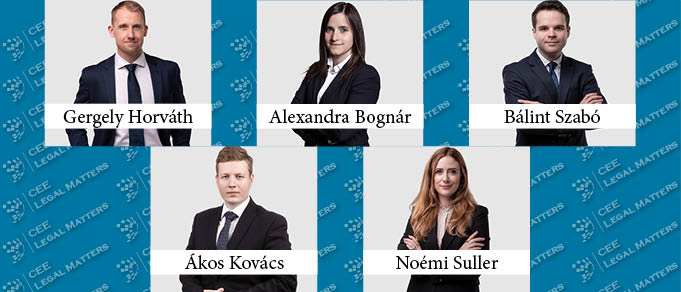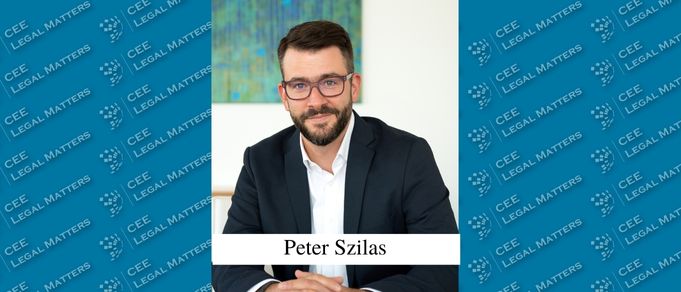Kinstellar has advised OTP Bank on its acquisition of Uzbekistan’s Ipoteka Bank. The White & Case London and Tashkent offices reportedly advised the seller.
Hungary Bouncing Back? A Buzz Interview with Erzsebet Szalay of BLS Hungary
The global economic downturn has hit Hungary much like the rest of the region but the country may be on its way to a quick recovery on the wings of diverse and dispersed investor interest, according to BLS-CEE Hungary Partner Erzsebet Szalay.
Ostermann & Partners and Wolf Theiss Advise on Sale of Gamepires to Jagex
Ostermann & Partners, working with Herbert Smith Freehills, has advised Gamepires on its sale to Jagex. Wolf Theiss advised Jagex on the acquisition.
Temporary Reduction of the Enforceability and Applicability of Late Payment Interest
According to the Hungarian Civil Code, the debtor is liable to pay interest on any owed money that has fallen due from the first day of the delay in payment, even if the use of the money was free of charge until the delay.
The New Land Registry Act Postponed to 1 February 2024
On 2 December 2022, a new act entered into force on the modification of certain acts related to the operation of territorial administration, the land registry and regional development. Under the new act, the new Land Registry Act will enter into force one year later, on 1 February 2024, instead of 1 February 2023 as planned originally. The new modifying act also contains other amendments.
Closing: Commerzbank’s Sale of Hungarian Subsidiary to Erste Now Closed
On December 14, 2022, the Lajer law firm announced that the sale of the Hungarian subsidiary of Commerzbank to Erste (reported by CEE Legal Matters on January 10, 2022) had closed.
Schoenherr Advises IDBC Hungary on New Headquarters Lease in Duna Tower
Schoenherr has advised IT, consultancy, and recruitment company IDBC Hungary on securing its new headquarters in the Duna Tower through a lease agreement with GTC.
2023 Tax Changes Updated by Fall Tax Package
The 2022 Fall Tax Package has been officially accepted by the Hungarian Parliament with the changes for 2023. The tax package does not bring fundamental changes, but includes finetuning with many different taxes, e.g. SMEs, real estate transactions and local business taxation.
Significant Changes to Hungarian Competition Law: Increased Merger Thresholds, Refinement of Powers, DMA Enforcement
The Hungarian Parliament recently adopted a rather significant update to Act LVII of 1996 on the prohibition of unfair market practices and the restriction of competition (“Hungarian Competition Act”). The updates are, at a number of points, based on recommendations made by the Hungarian Competition Association (with DLA Piper’s antitrust group providing significant input). The amendments will generally enter into force on 1 January 2023 (with some exceptions for 1 February 2023). Below, we have collected some of the key changes for Hungarian and international businesses.
Clifford Chance Advises United Petfood on Acquisition of Two Cargill Facilities in Poland and Hungary
Clifford Chance has advised Waterland Private Equity portfolio company United Petfood on its acquisition of Cargill's production facilities in Krzepice, Poland, and Karcag, Hungary. Lakatos Koves and Partners reportedly advised the buyer as well.
Closing: MOL, Lotos, and Orlen Petrol Station Transactions Now Closed
On December 1, 2022, SMM Legal announced that MOL's acquisition of Lotos Paliwa (reported by CEE Legal Matters on February 2, 2022) had closed. Subsequently, Baker McKenzie announced that Orlen Unipetrol's acquisition of Hungarian petrol stations from MOL (reported by CEE Legal Matters on February 1, 2022) had closed as well.
Closing: Wirtualna Polska’s Acquisition of Szallas Group Now Closed
On November 30, 2022, the BLS-CEE Law Firm announced that Wirtualna Polska’s acquisition of the Szallas Group from Portfolion Capital Partners and private individuals (reported by CEE Legal Matters on September 16, 2022) had closed.
Stability at a Price for Hungary: A Buzz Interview with Gabor Damjanovic of Forgo, Damjanovic & Partners
Under the "heavy influence" of the current autocratic regime, Hungary might seem stable but Forgo, Damjanovic & Partners Managing Partner Gabor Damjanovic wonders if the country is prepared to tackle the challenges of the wider economic context.
Dentons Advises on Development and Sale of Green Court in Budapest
Dentons has advised Belgium-based real estate developer Codic on the development of the Green Court multifunctional project in Budapest and on its EUR 77 million sale to Groupama Gan REIM. CMS reportedly advised Groupama.
Buyers Beware – New Hungarian Merger Control Rules for Acquisitions Involving JVs
Hungarian merger control is generally aligned with the relevant EU rules with only relatively minor exceptions or special rules. For example, a notable special rule – which follows similar trends in major European jurisdictions – is the existence of the soft threshold regime, which enables the Hungarian Competition Authority (the Gazdasági Versenyhivatal, “GVH”) to intervene in case the traditional/“hard” thresholds are not met, but where competition is threatened on a specific market (e.g. in case of “killer acquisitions”).
The Status of CEE Banking & Finance: A CEE Legal Matters Round Table
On November 10, four Banking & Finance experts from Croatia, Hungary, Romania, and Serbia sat down for a virtual round table moderated by CEE Legal Matters Managing Editor Radu Cotarcea to discuss banking consolidation, financing availability, the effects of high interest rates, bank capitalization, green financing, the specter of loan restructuring, and the other challenges the sector is facing.
Hungary's New Integrity Authority: What Is It and How Could It Benefit Foreign Investors?
Hungary's parliament passed a package of anti-corruption laws on 3 October 2022 as part of the commitments made by the government to the European Commission.
Peter Szilas Joins Jalsovszky to Head Commercial Litigation Practice
Former CMS Senior Counsel Peter Szilas has joined Jalsovszky as a Senior Associate and Head of the firm's Commercial Litigation practice.


